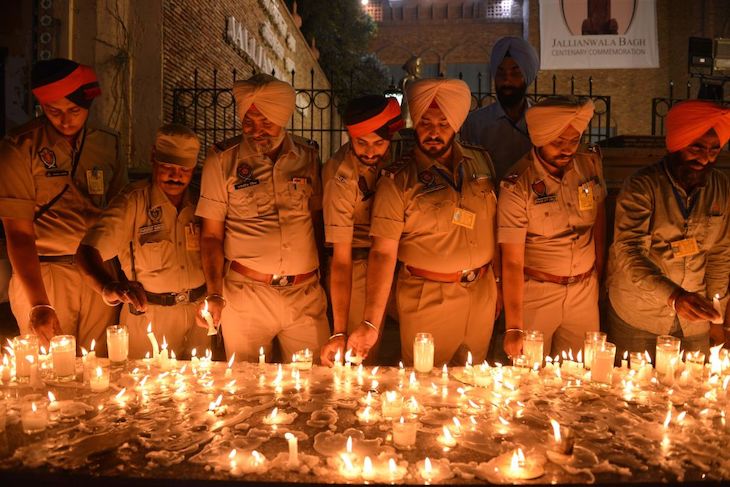On the afternoon of 13 April 1919, troops commanded by brigadier-general Reginald Dyer opened fire on thousands of unarmed Indian protesters massed at an enclosed garden in Amritsar in Punjab known as Jallianwala Bagh. When the shooting stopped – and it stopped only because Dyer ran out of ammunition – some 500 people, mostly Sikhs, lay dead.
Dyer lost his job but kept his life, liberty, and reputation. Bigots in Britain, energetically vilifying those who denounced him, raised thousands of pounds to lubricate his transition from the subcontinent to the English countryside. Edwin Montagu, secretary of state for India, was traduced in the press and in the corridors of the Commons as a disloyal ‘Jew’ for demanding tougher sanctions against Dyer. The psychopath who presided over the slaughter in India, unrepentant to the end, died in a sumptuous wallow of self-pity in 1927. Thirteen years later, an Indian revolutionary shot dead Dyer’s civilian boss, Michael O’Dwyer, at London’s Caxton Hall.

Get Britain's best politics newsletters
Register to get The Spectator's insight and opinion straight to your inbox. You can then read two free articles each week.
Already a subscriber? Log in






Comments
Join the debate for just $5 for 3 months
Be part of the conversation with other Spectator readers by getting your first three months for $5.
UNLOCK ACCESS Just $5 for 3 monthsAlready a subscriber? Log in